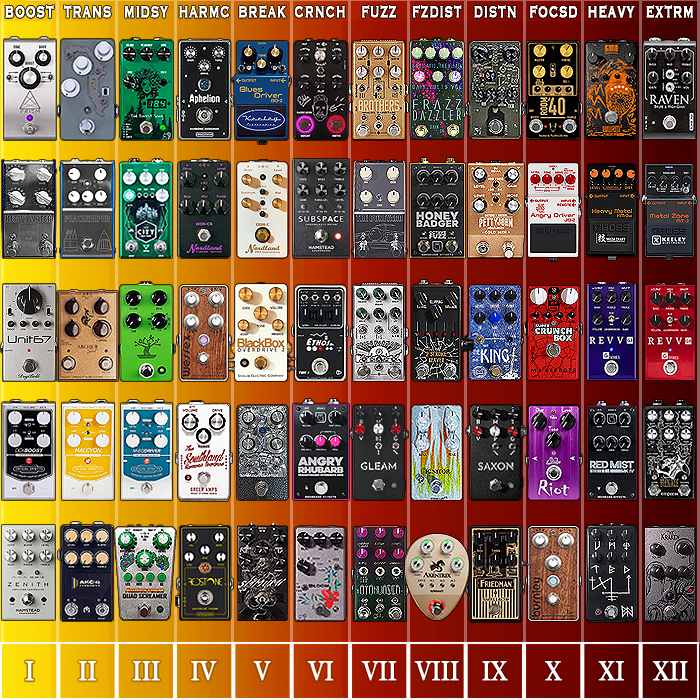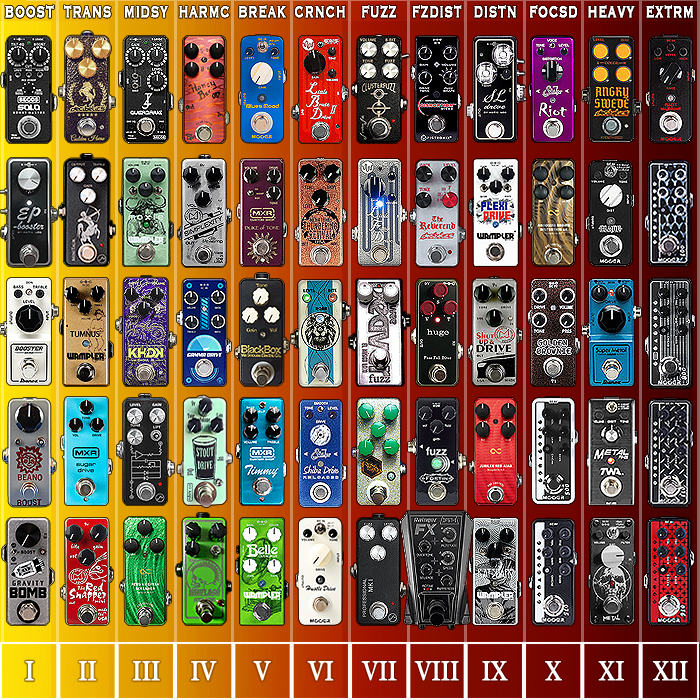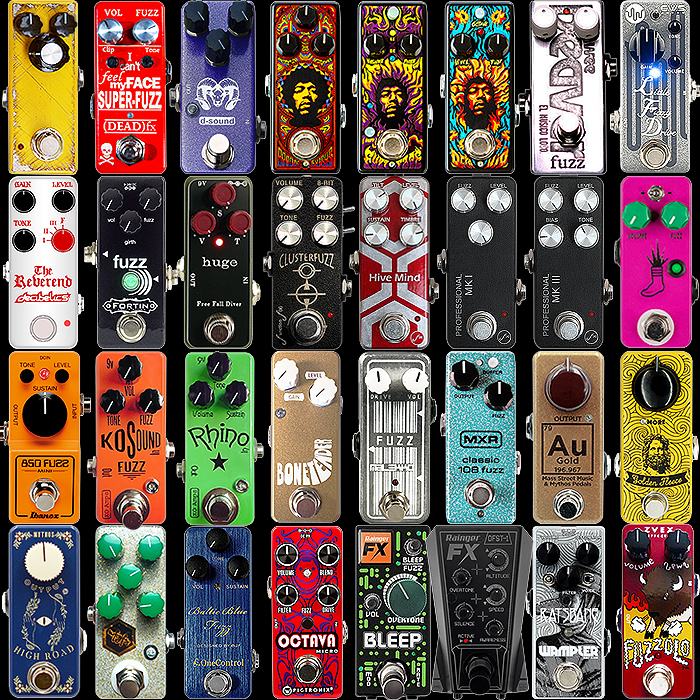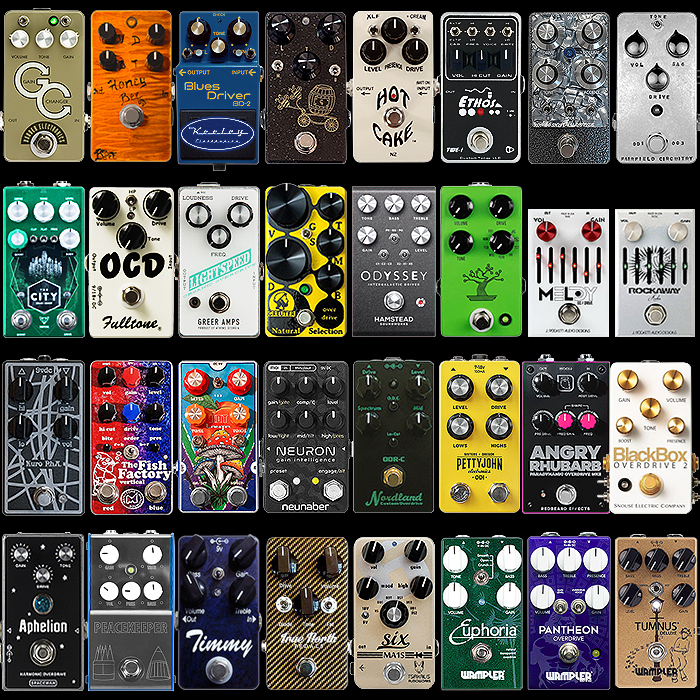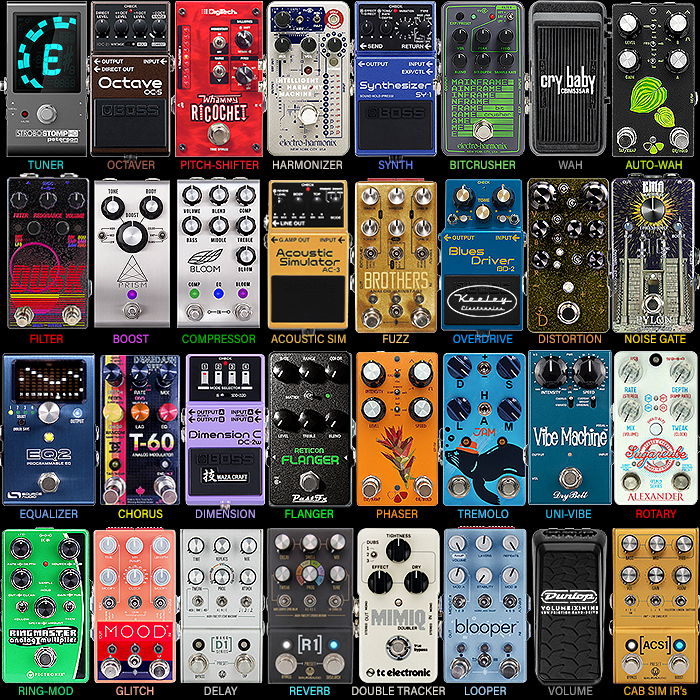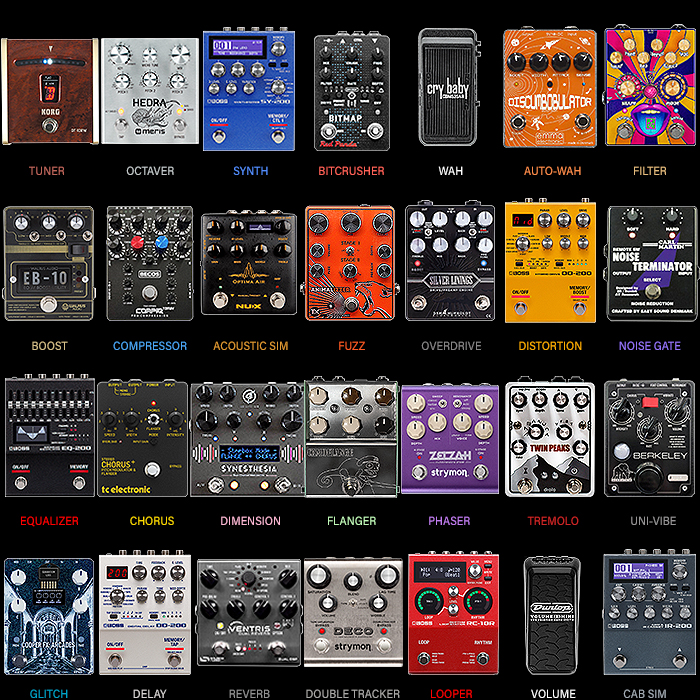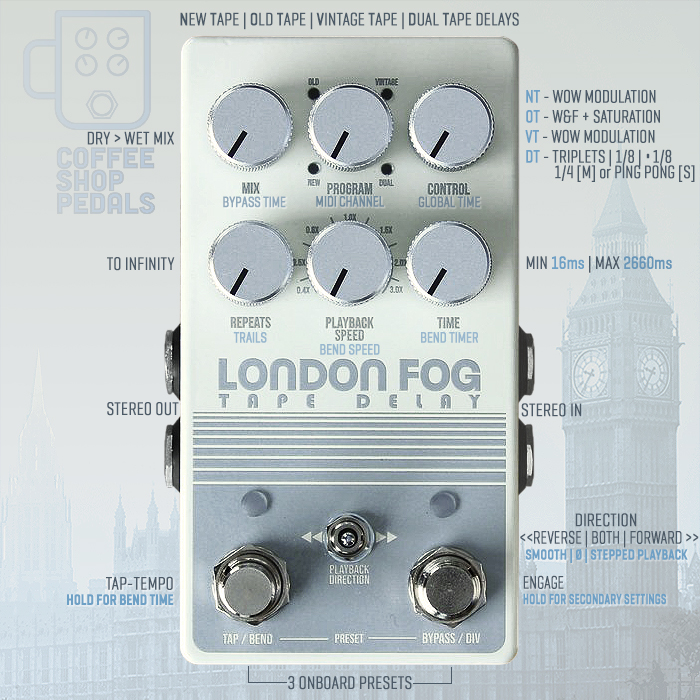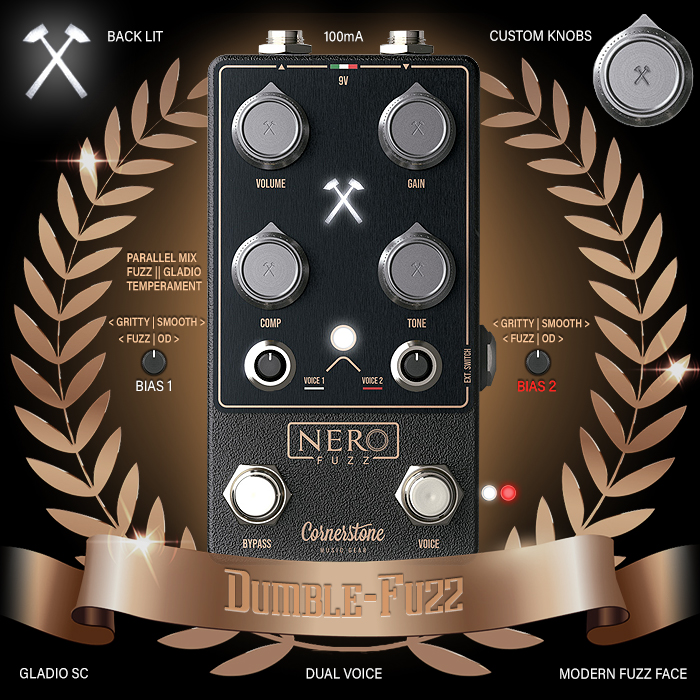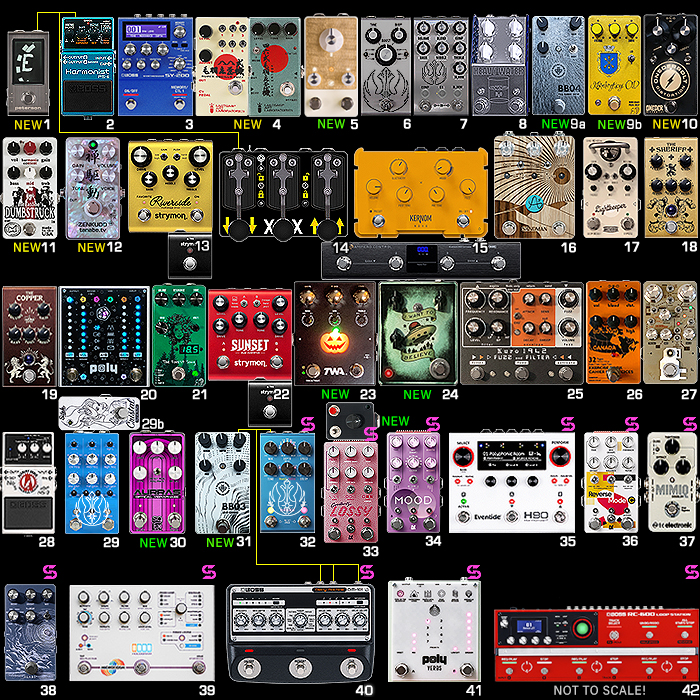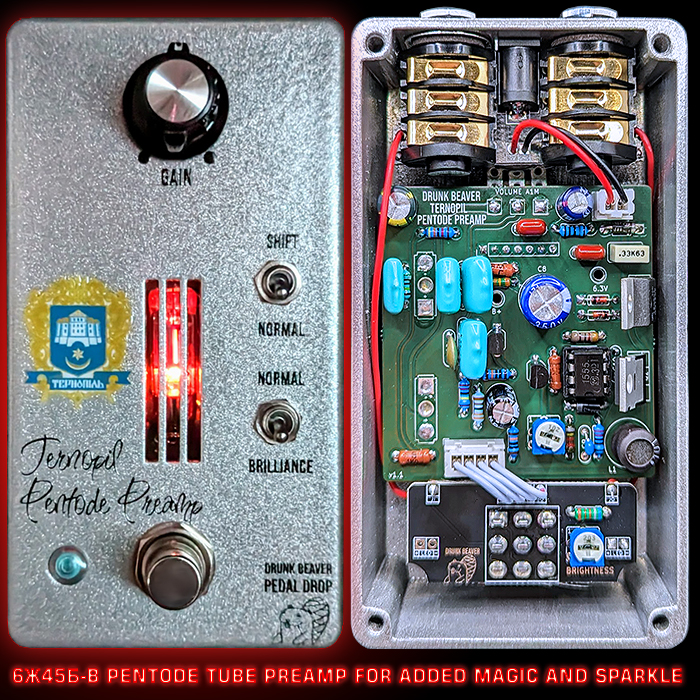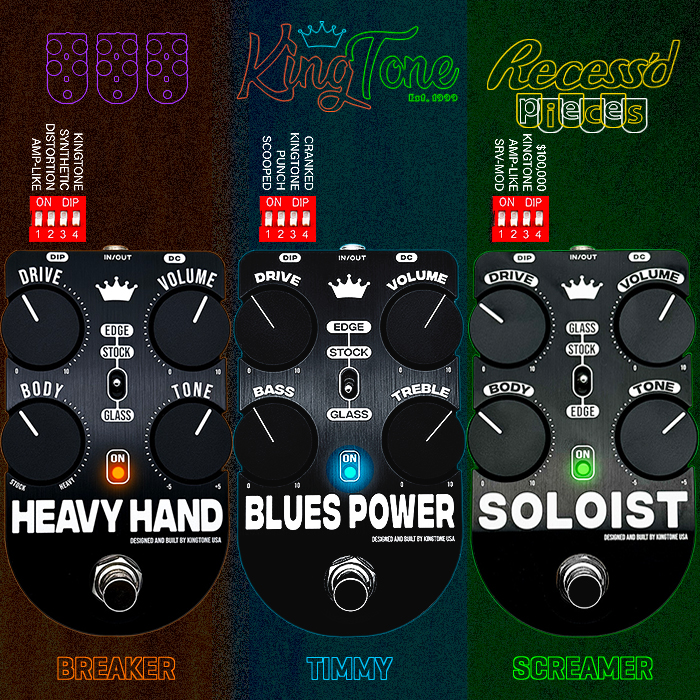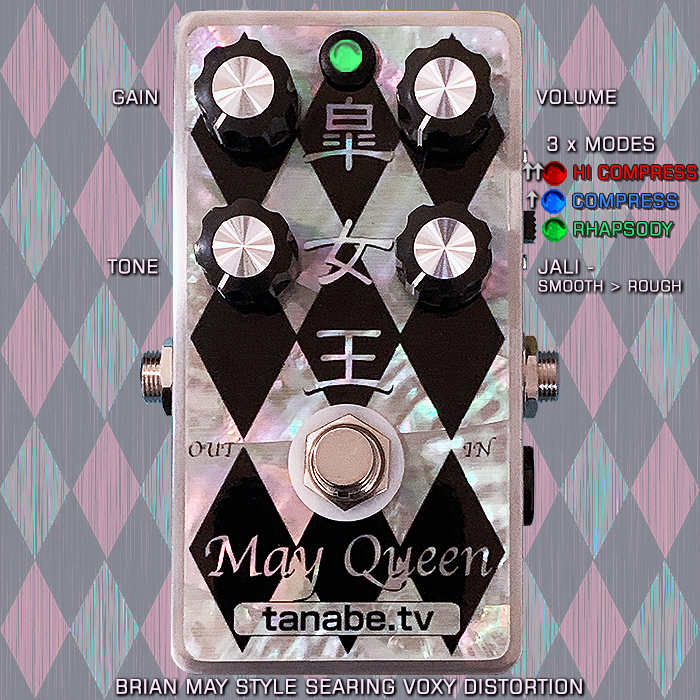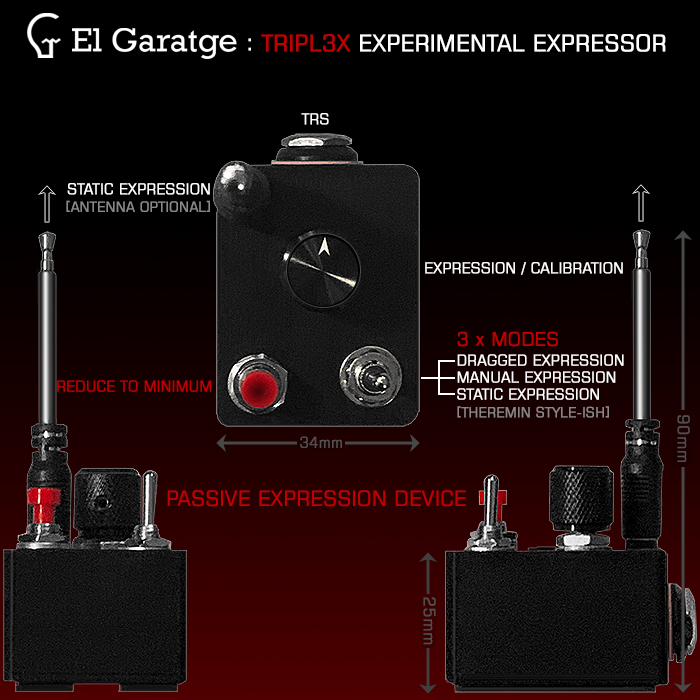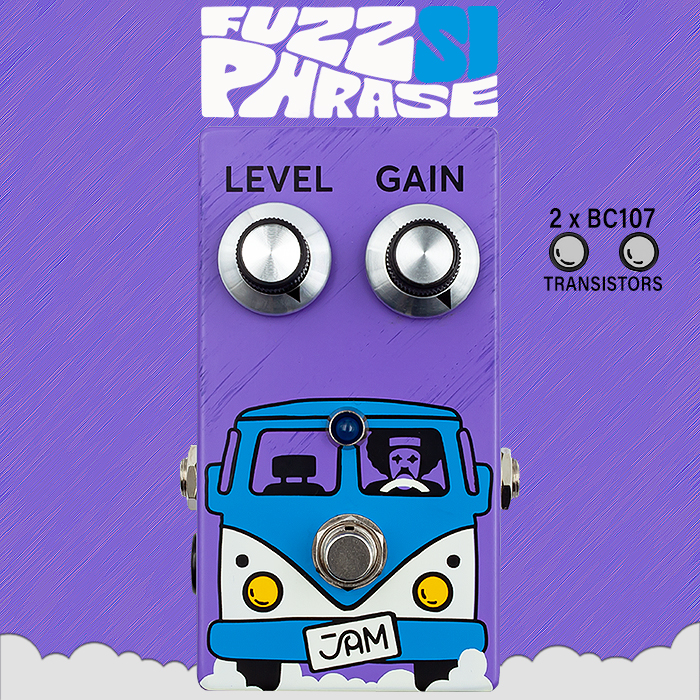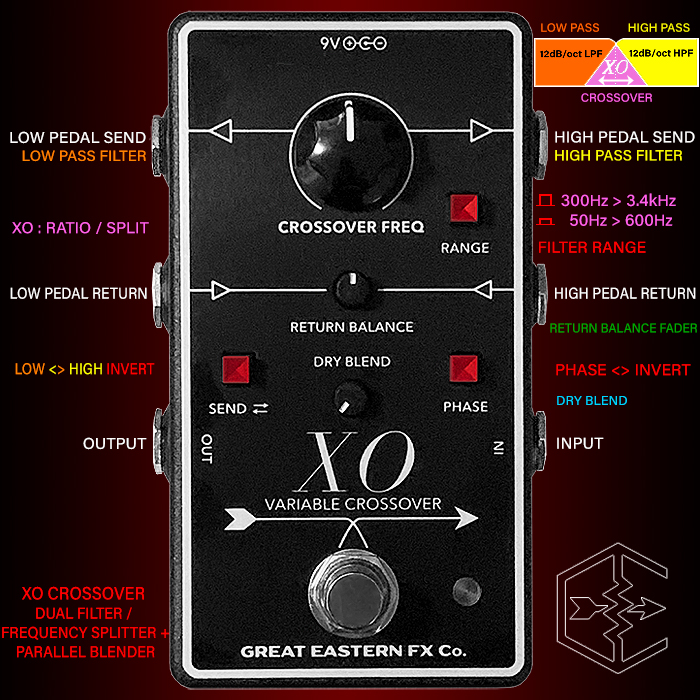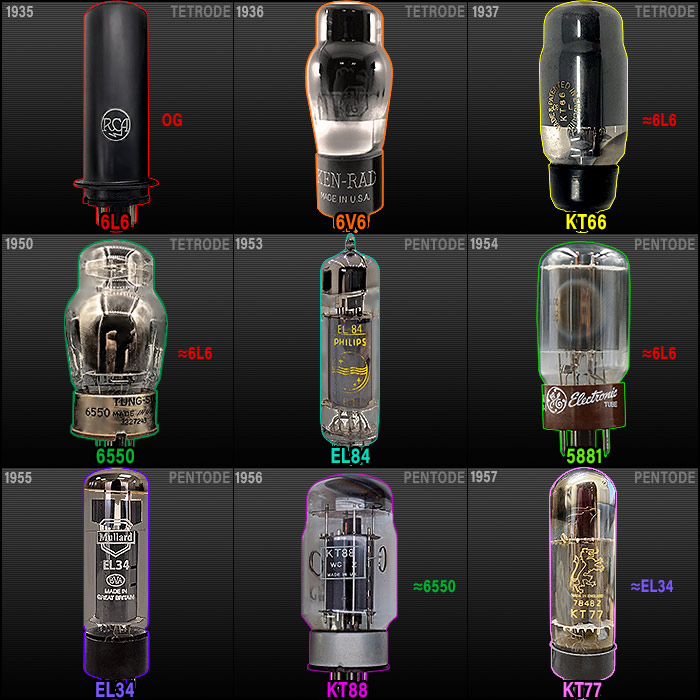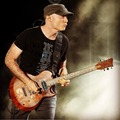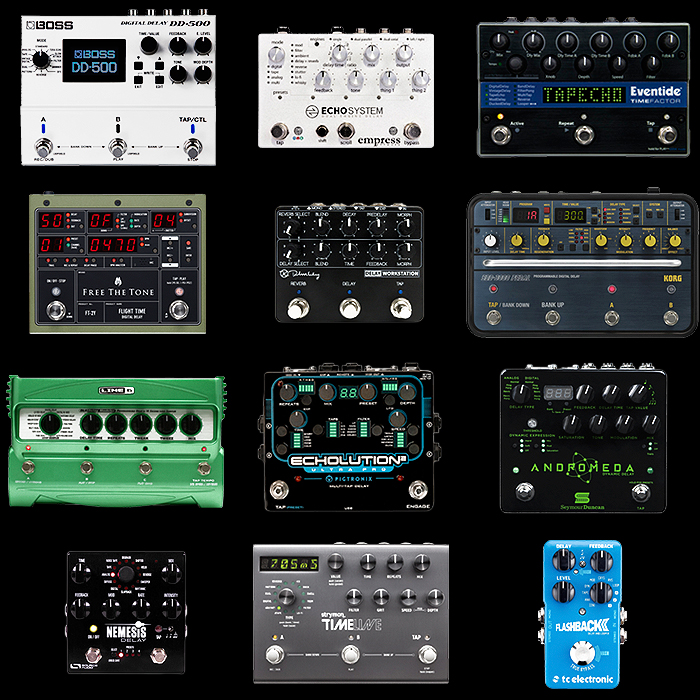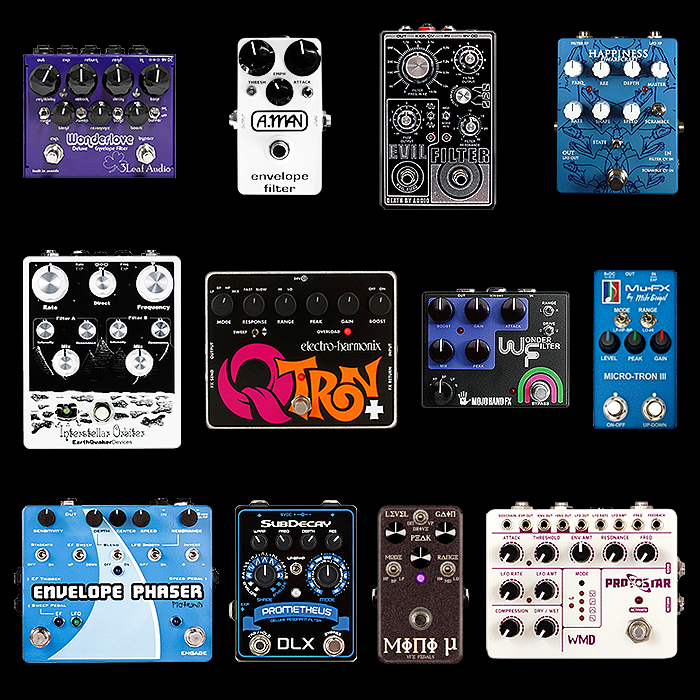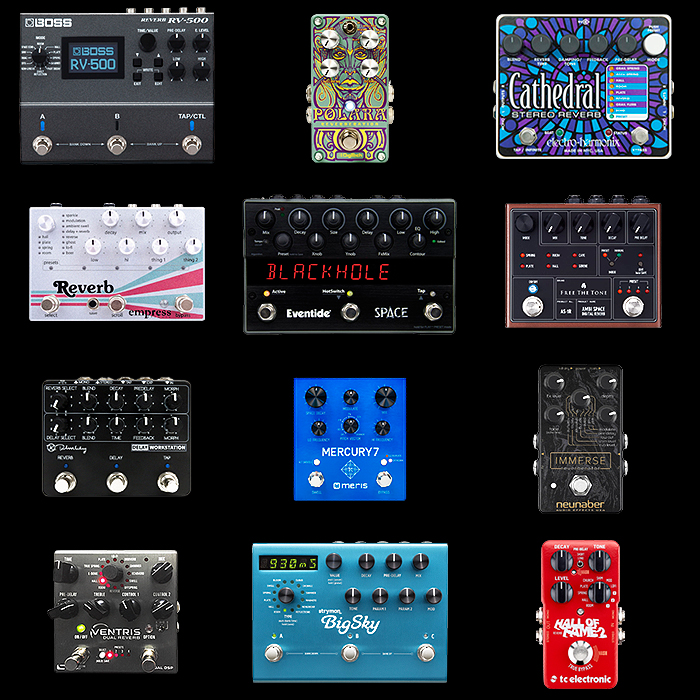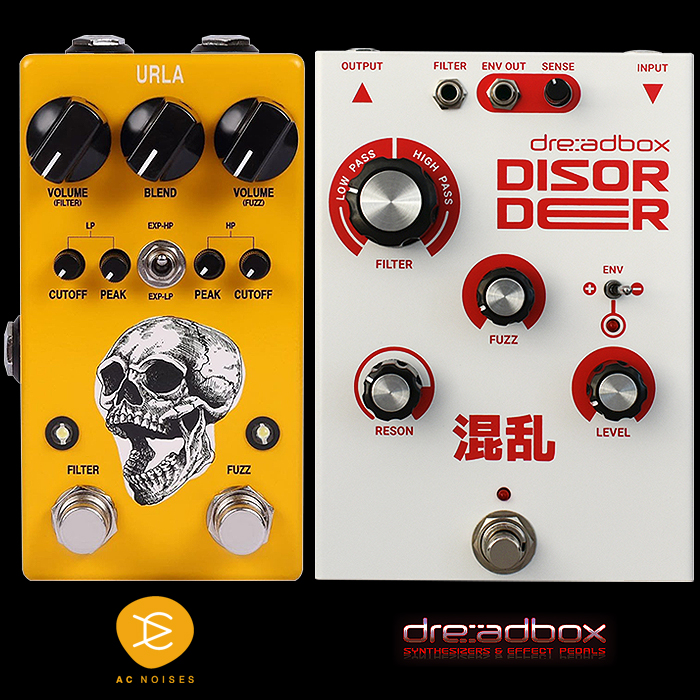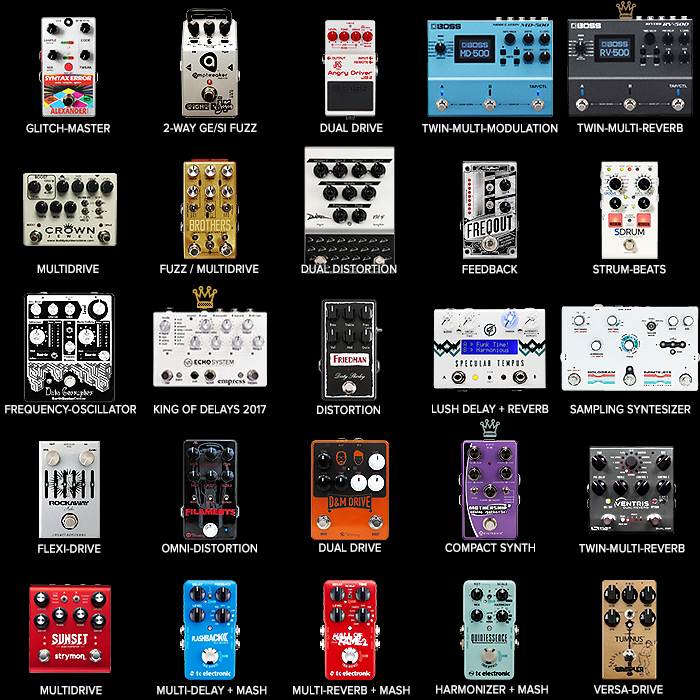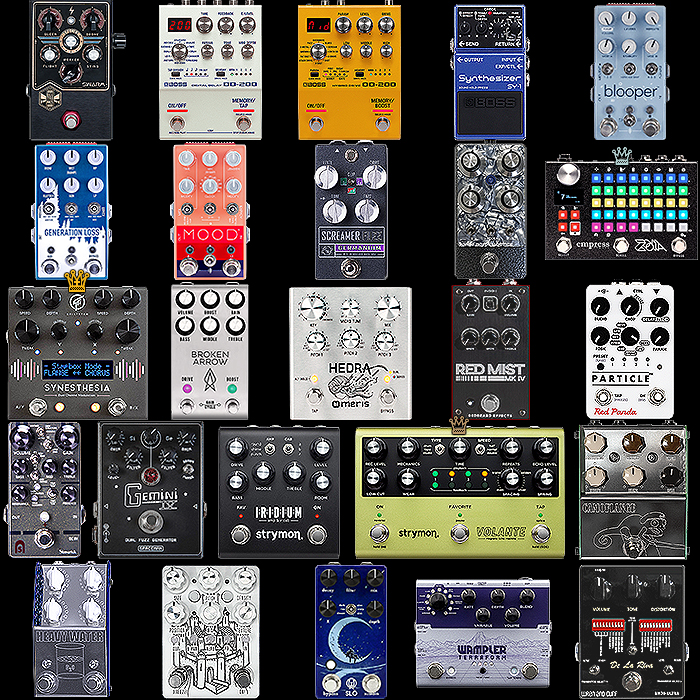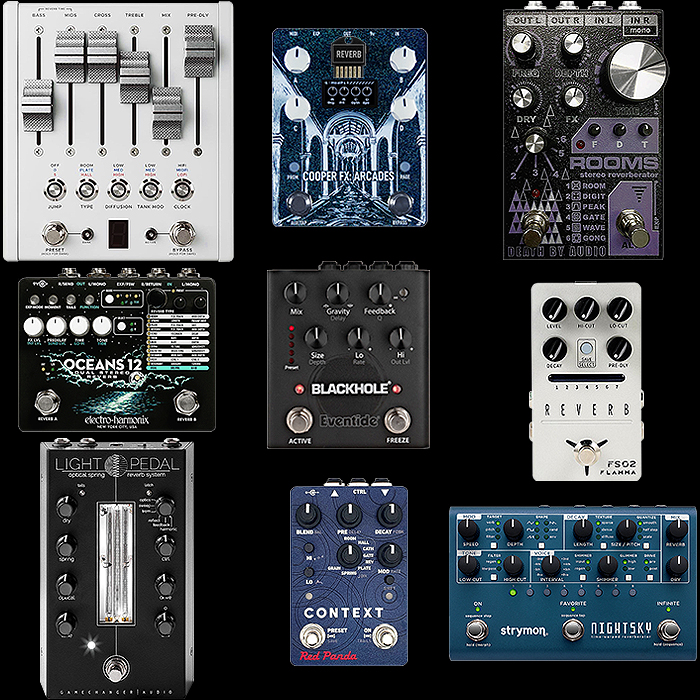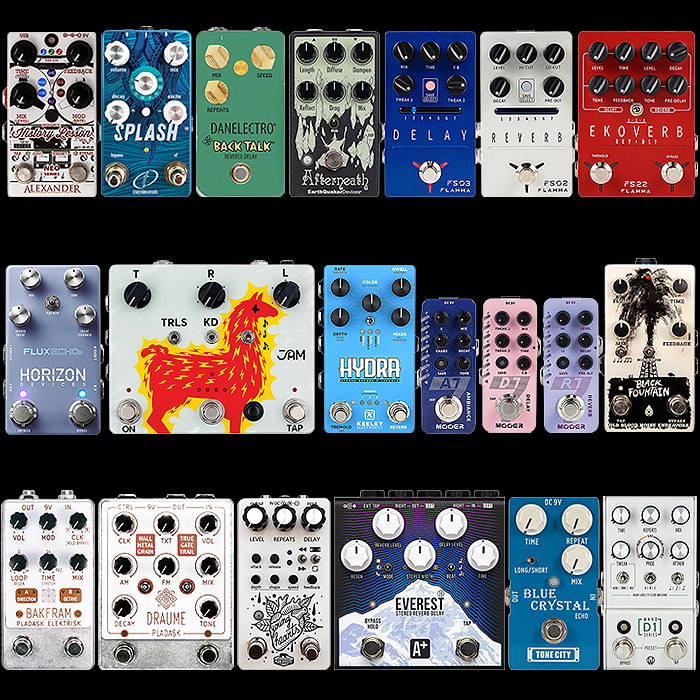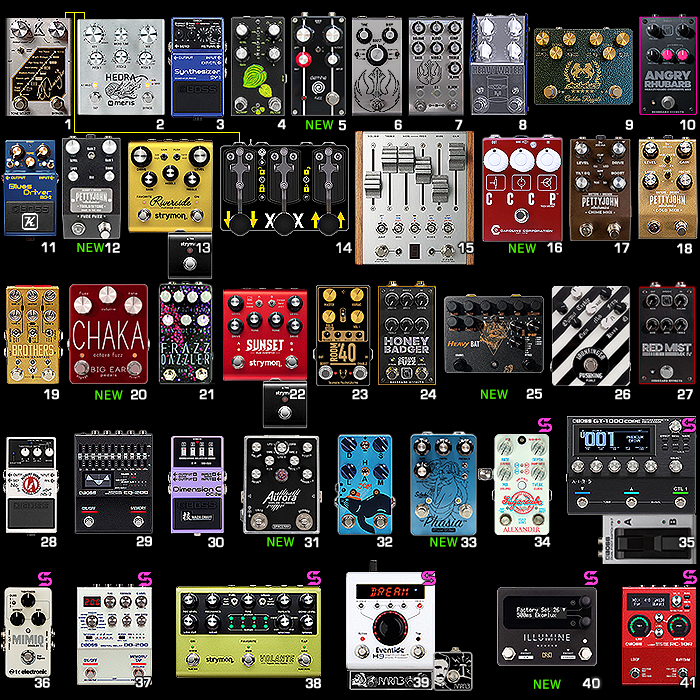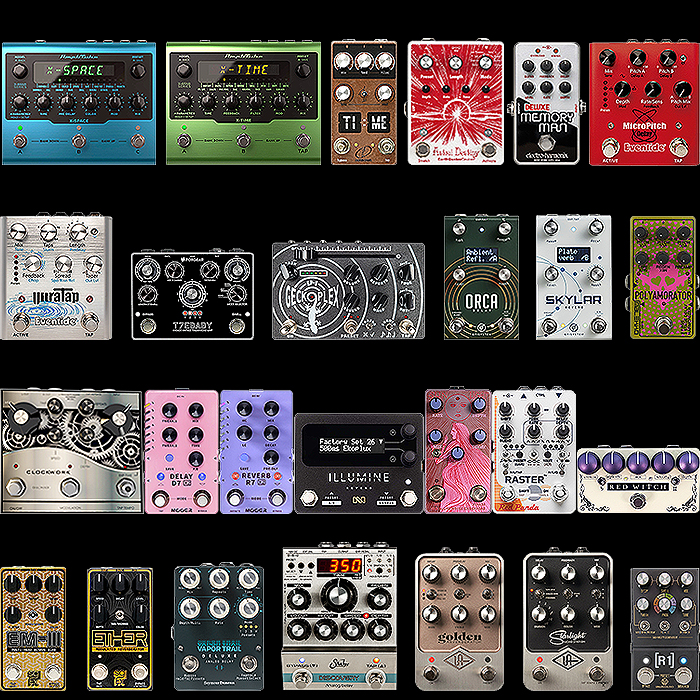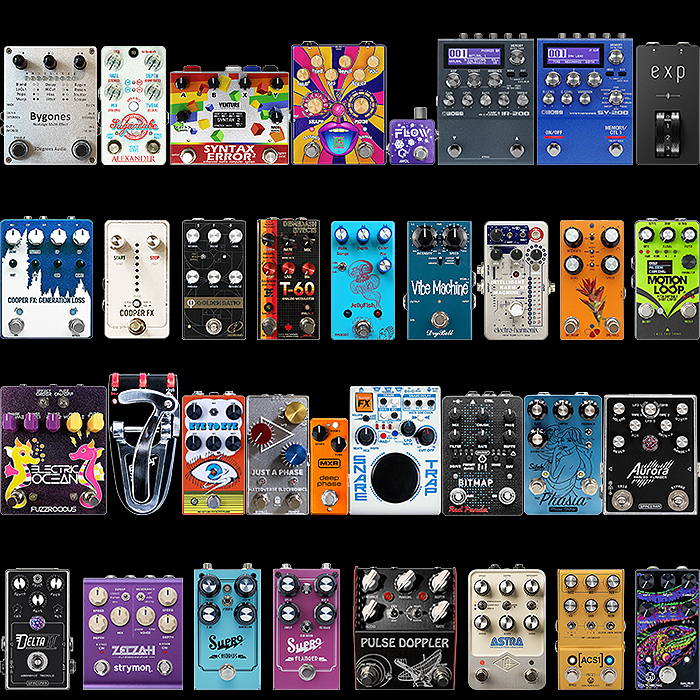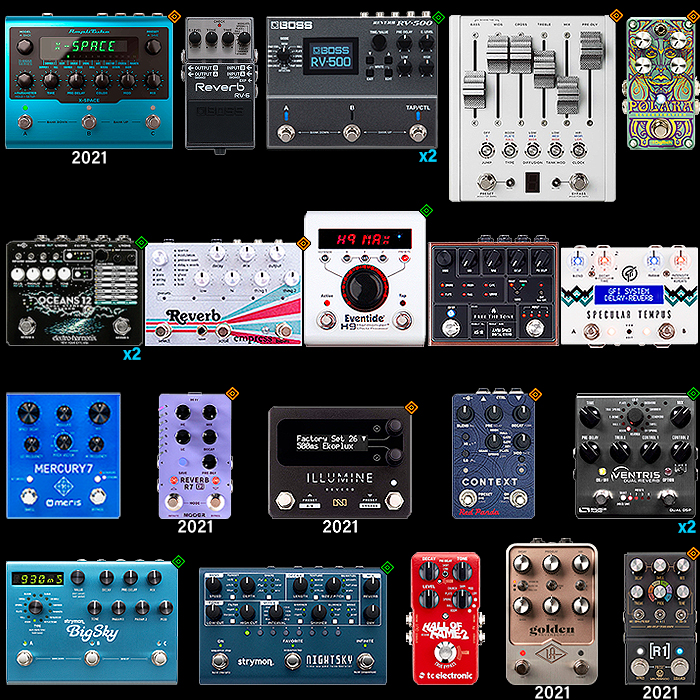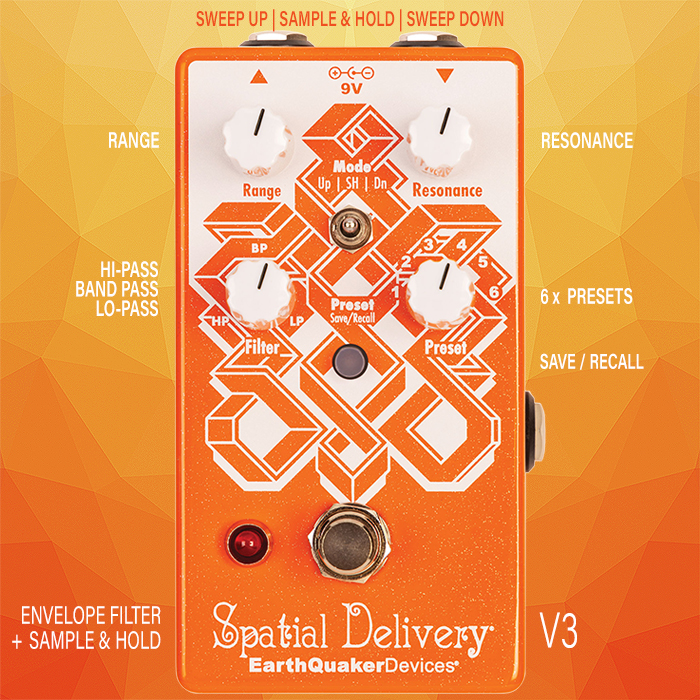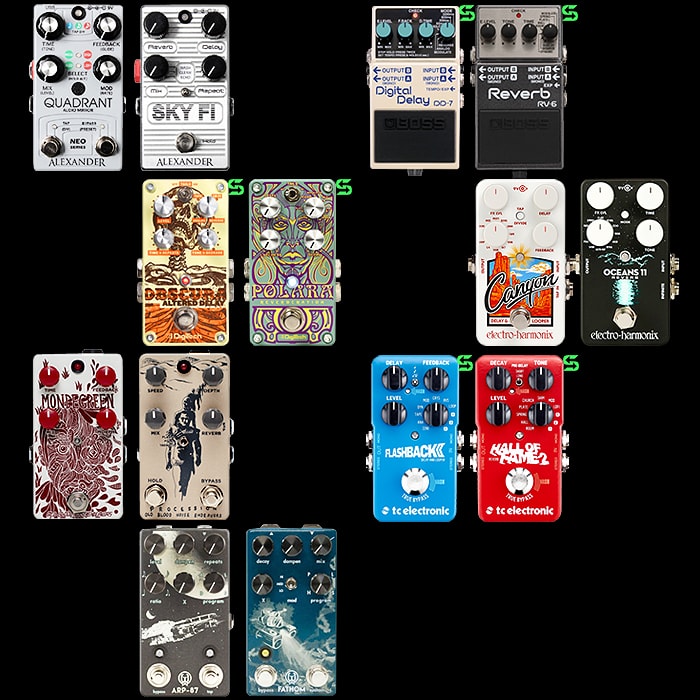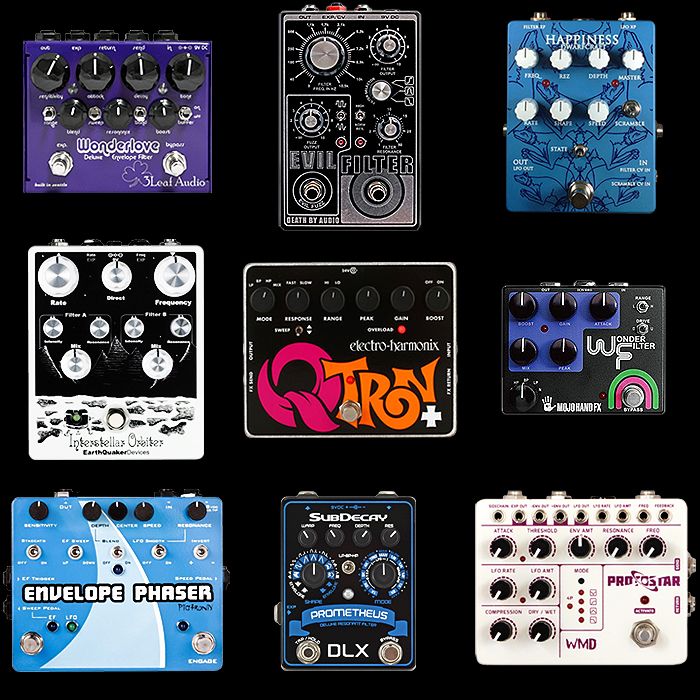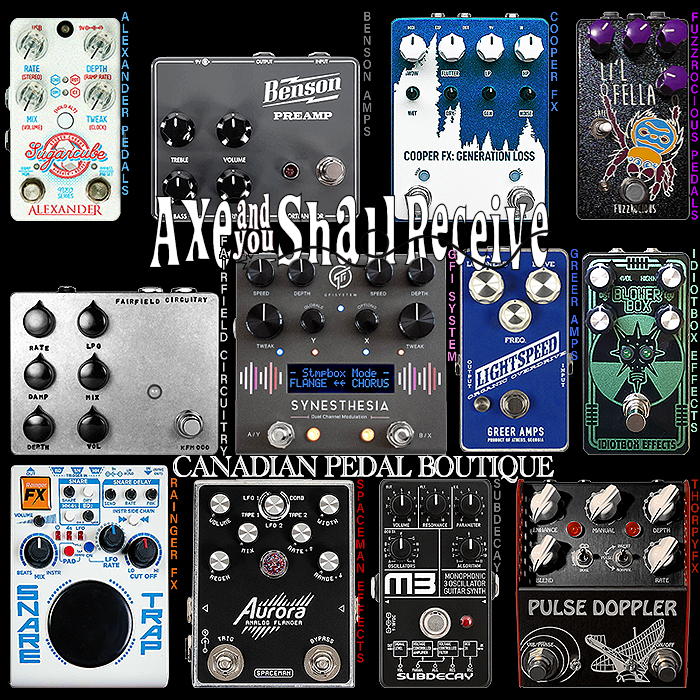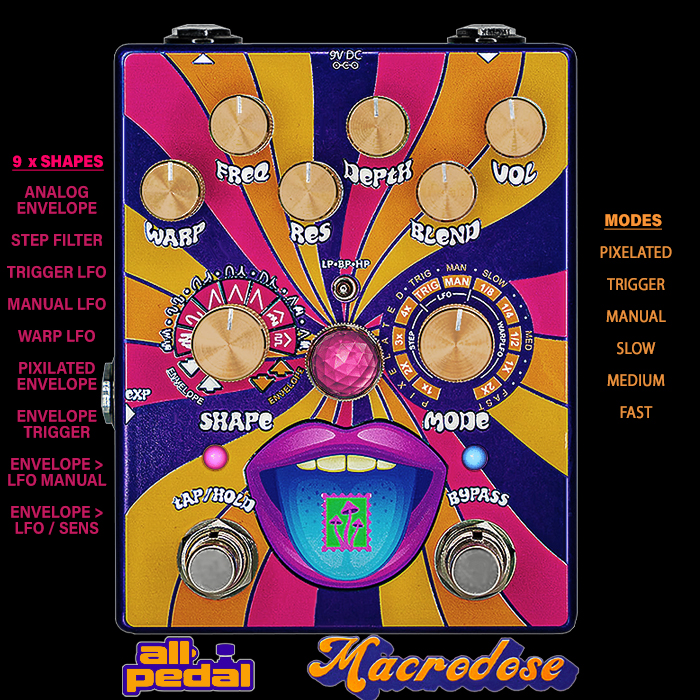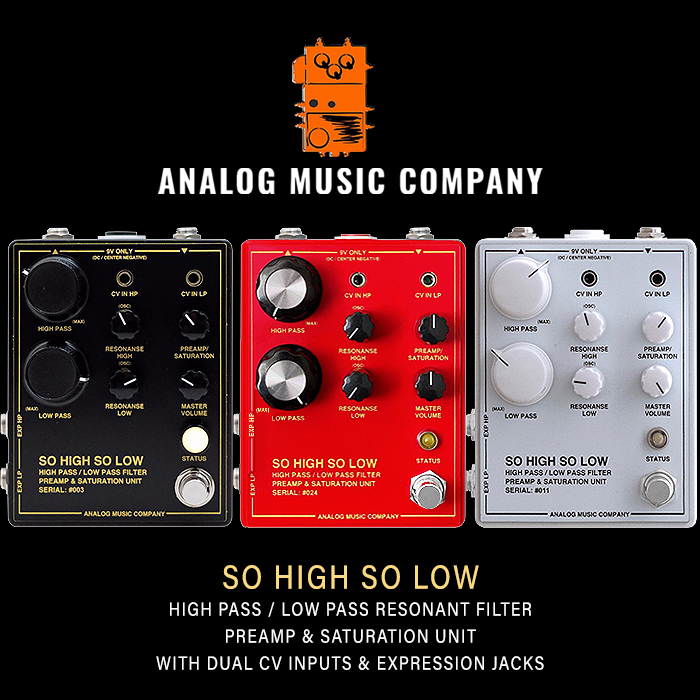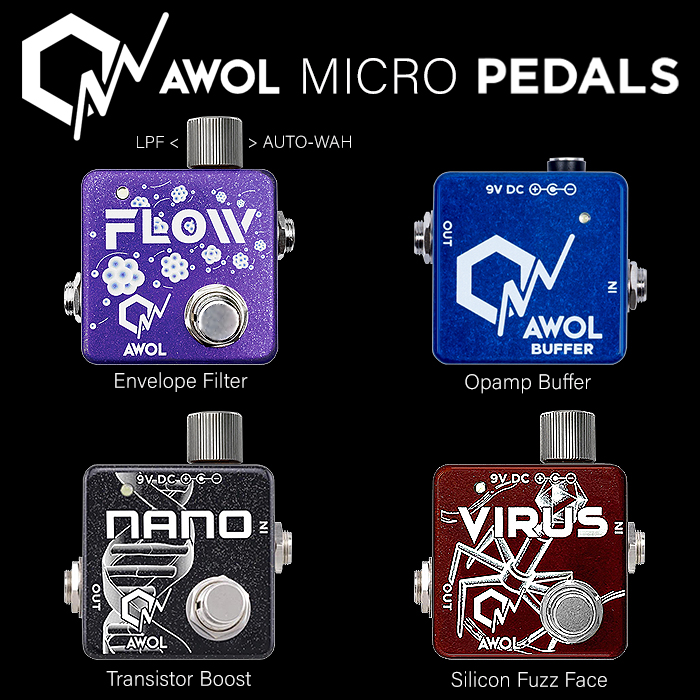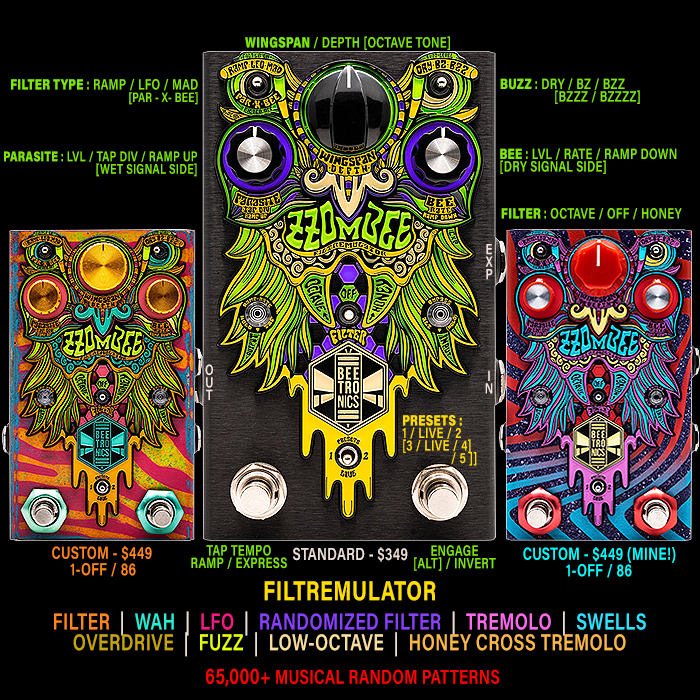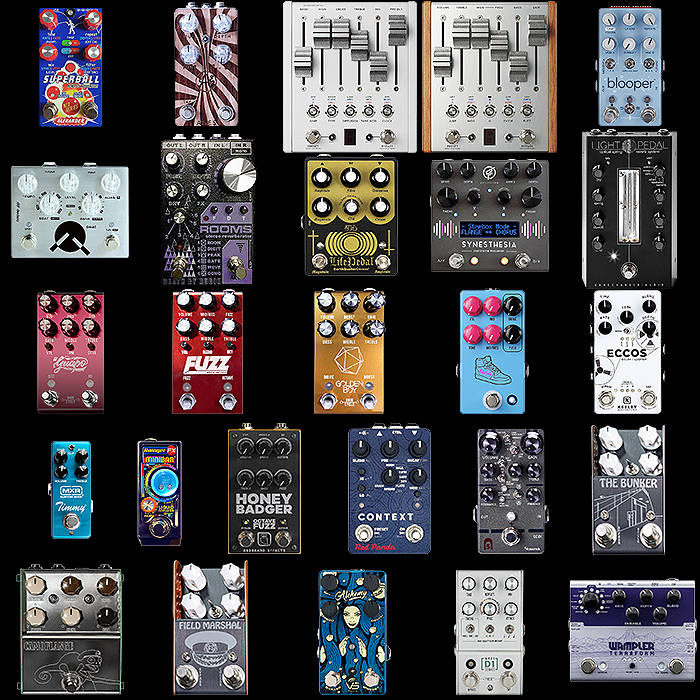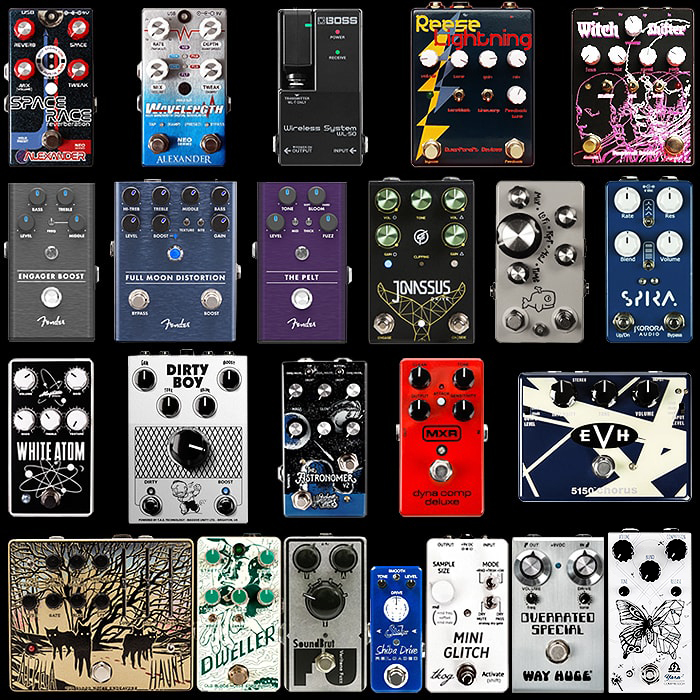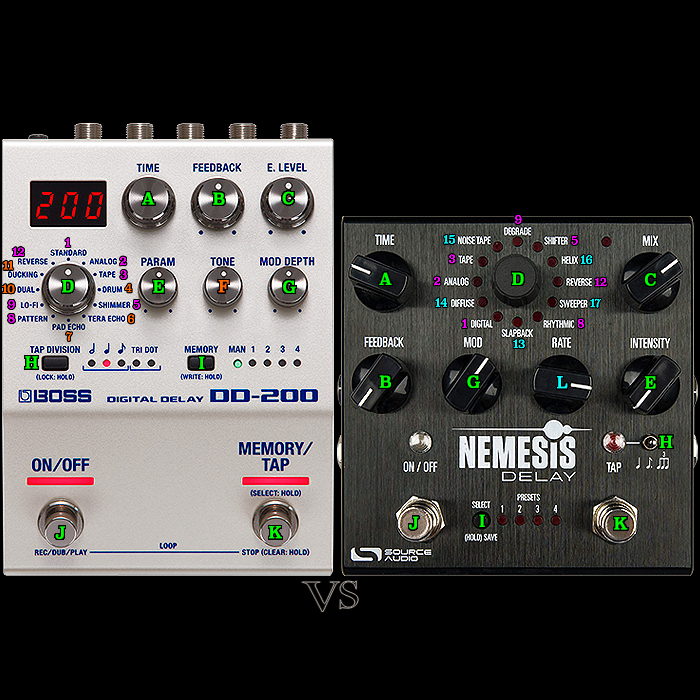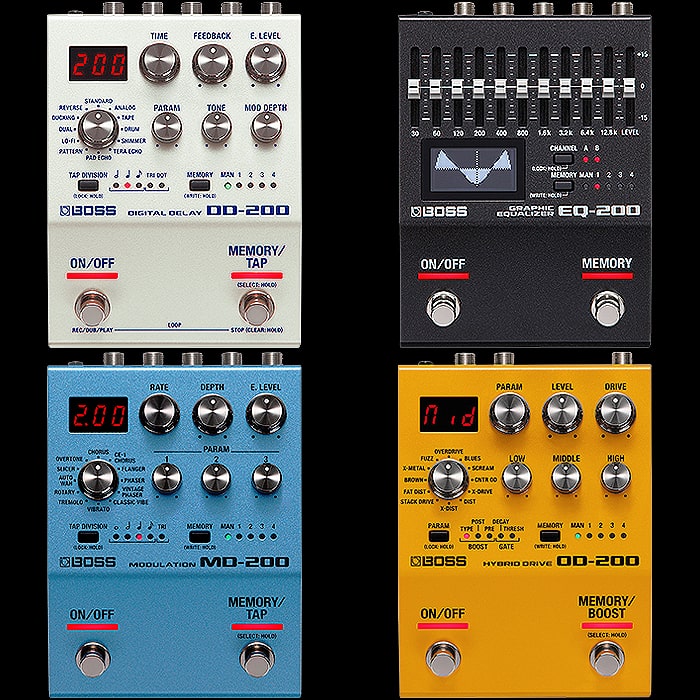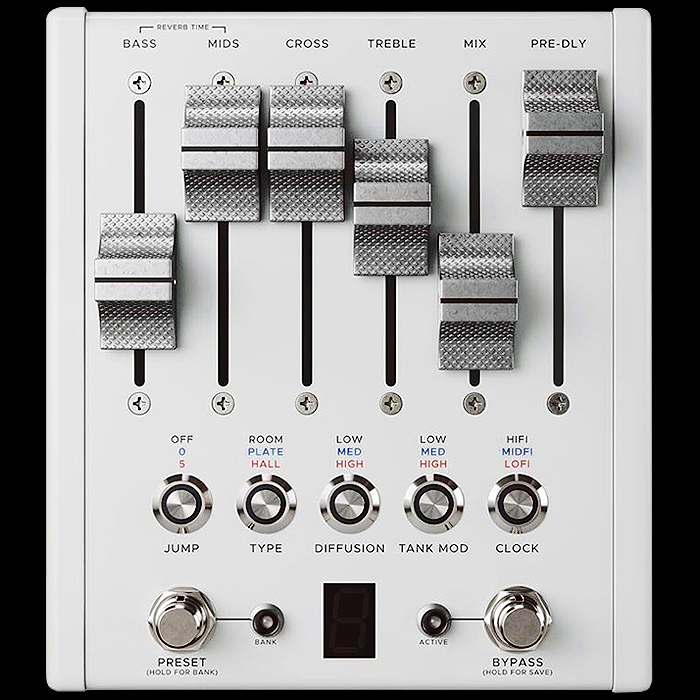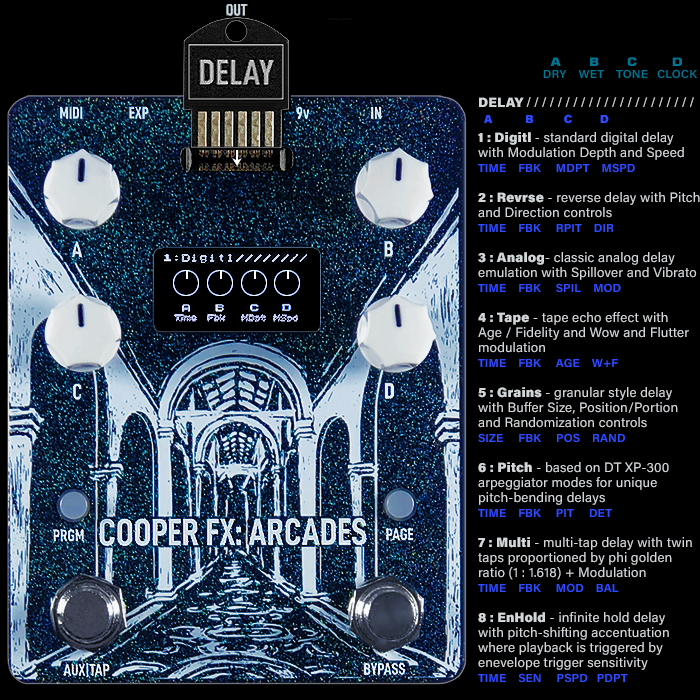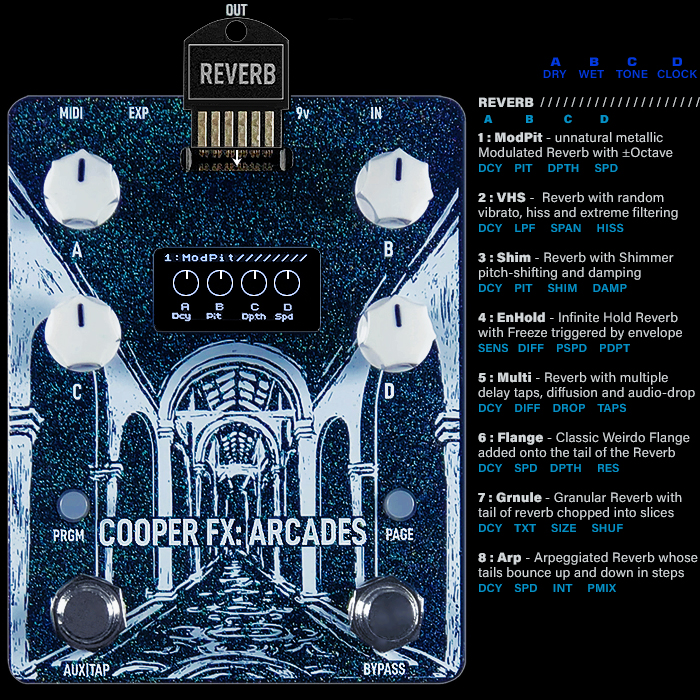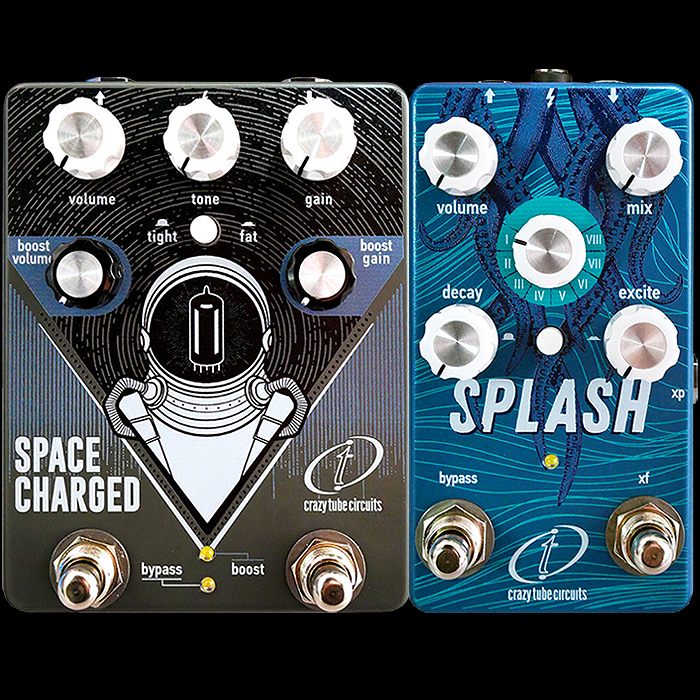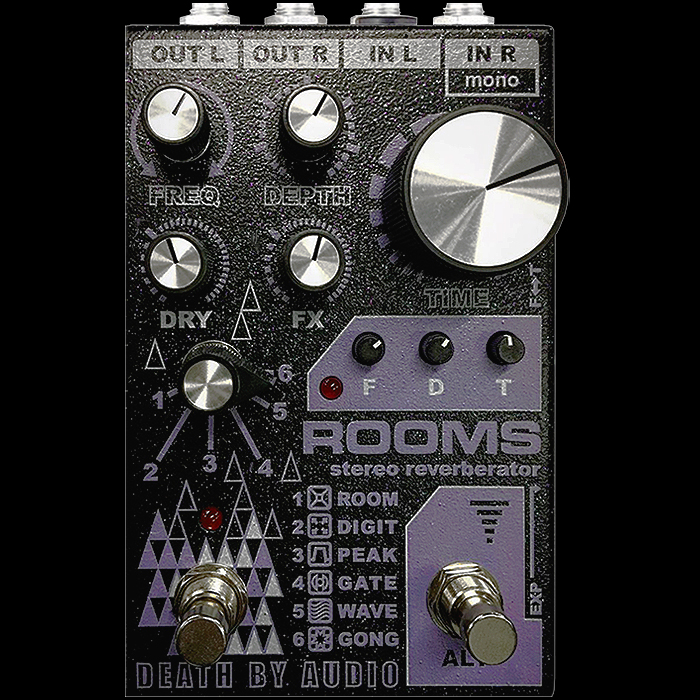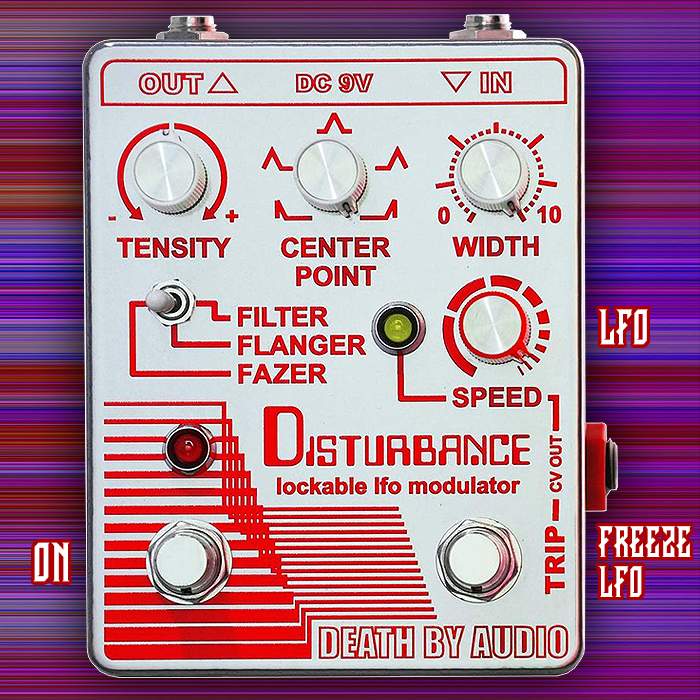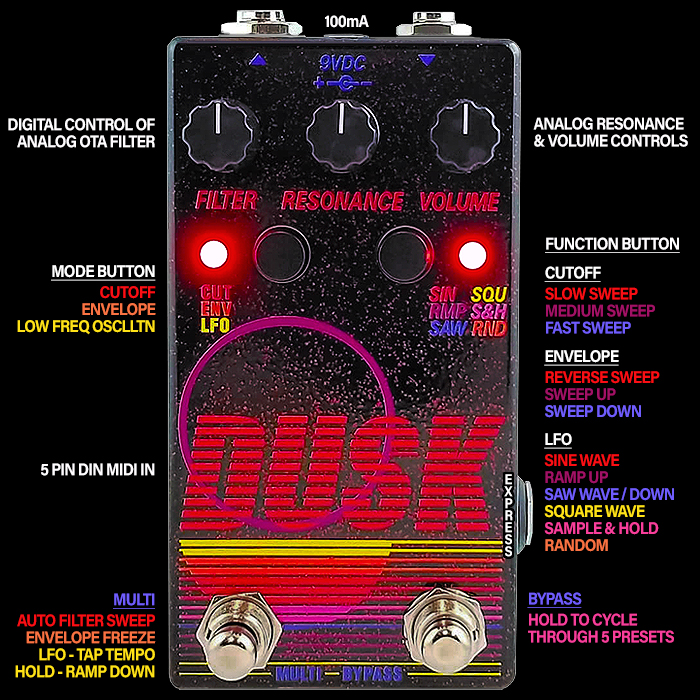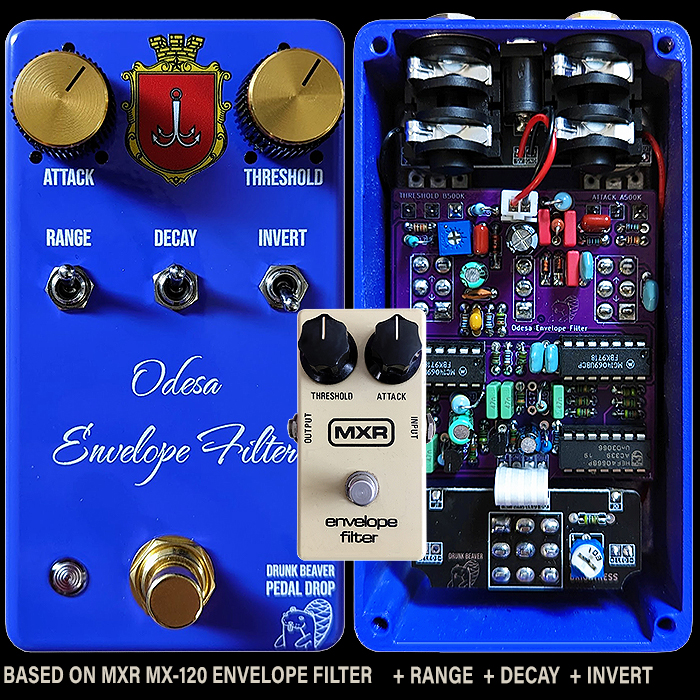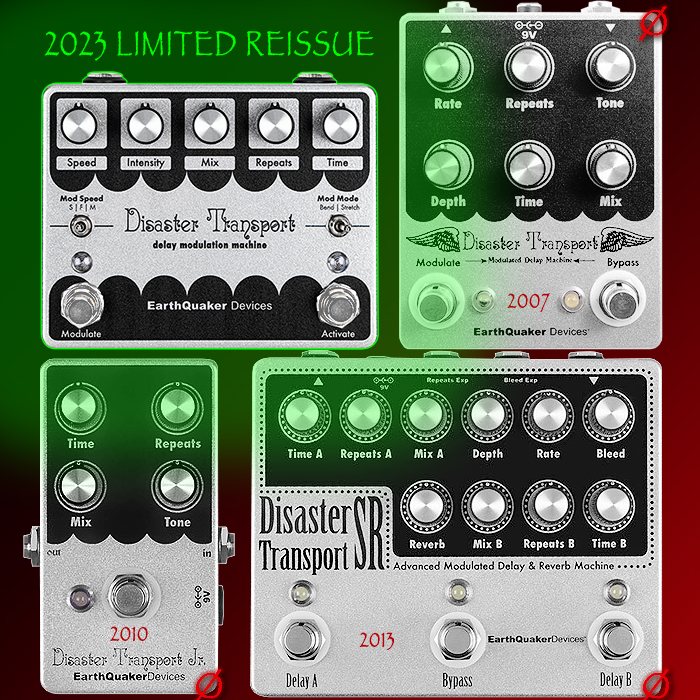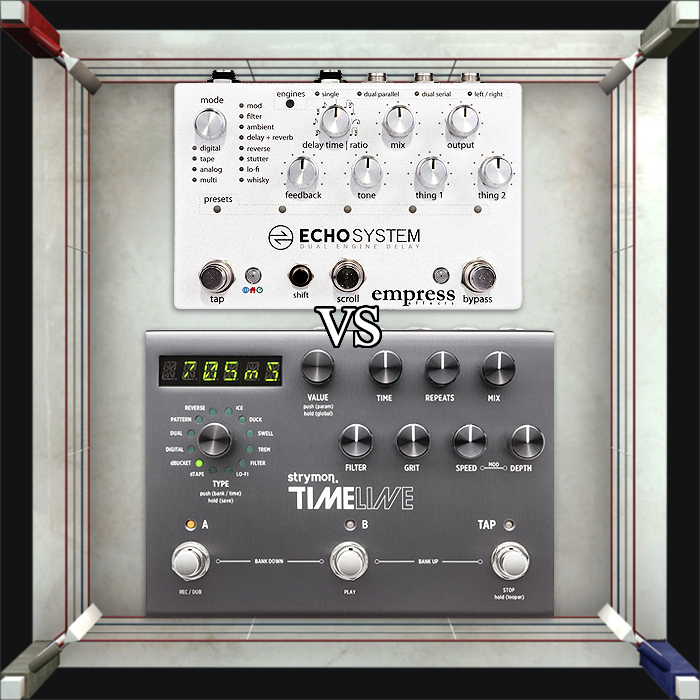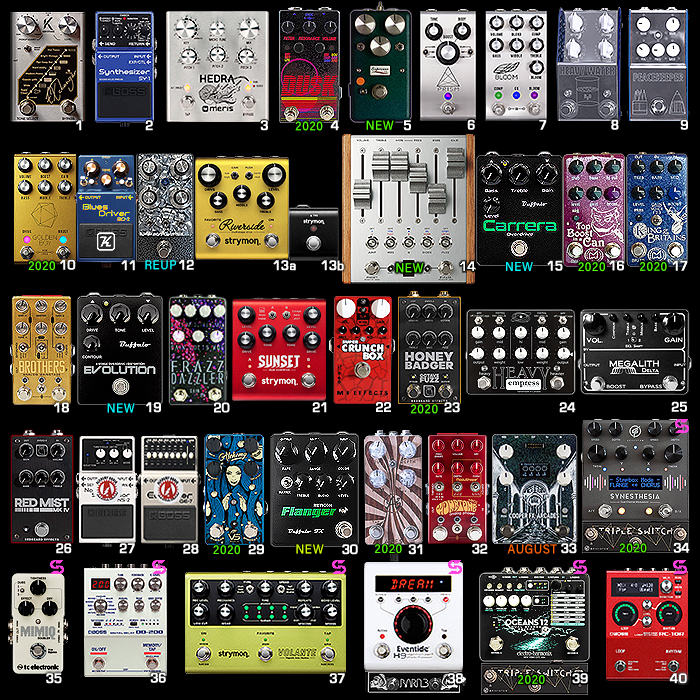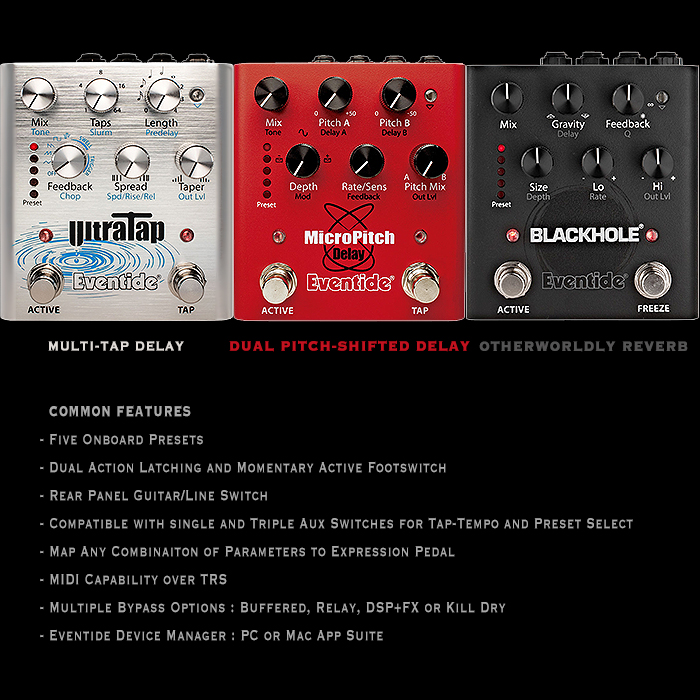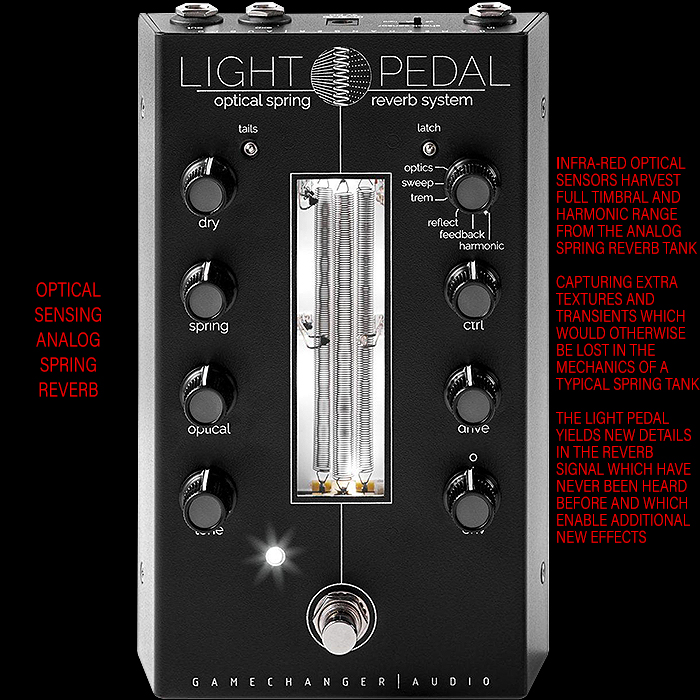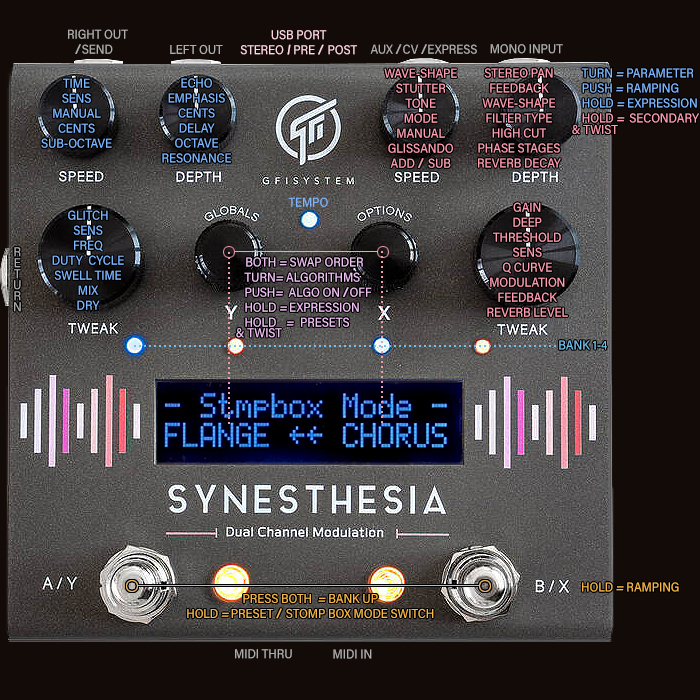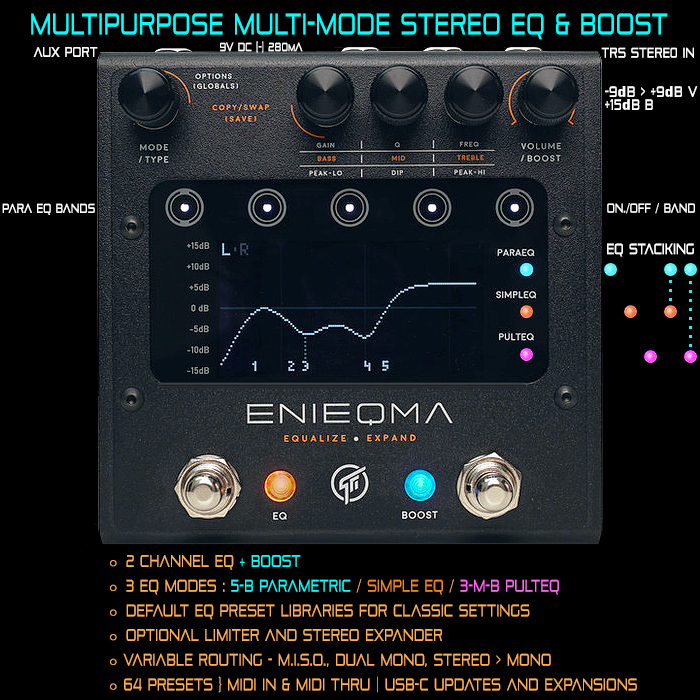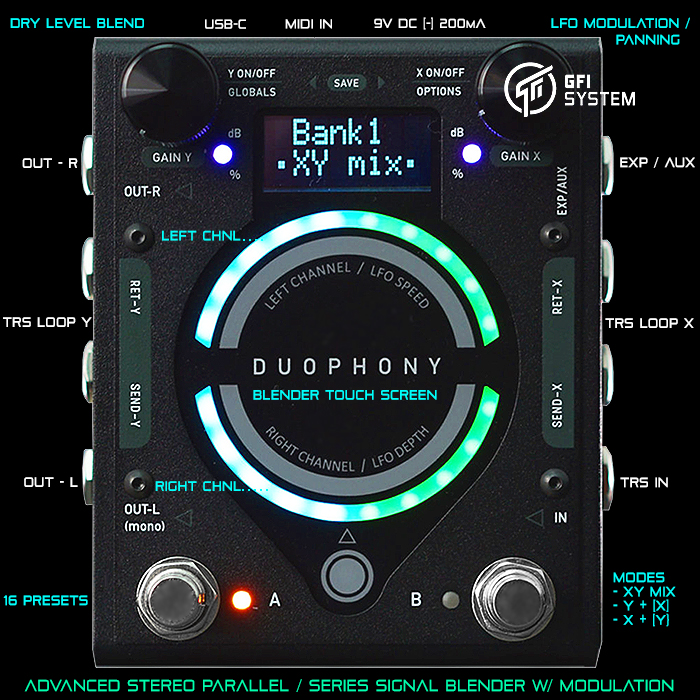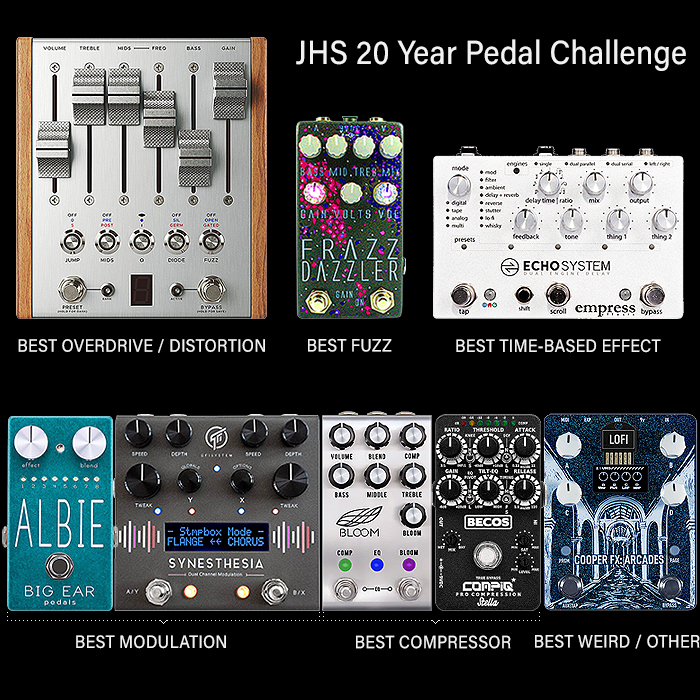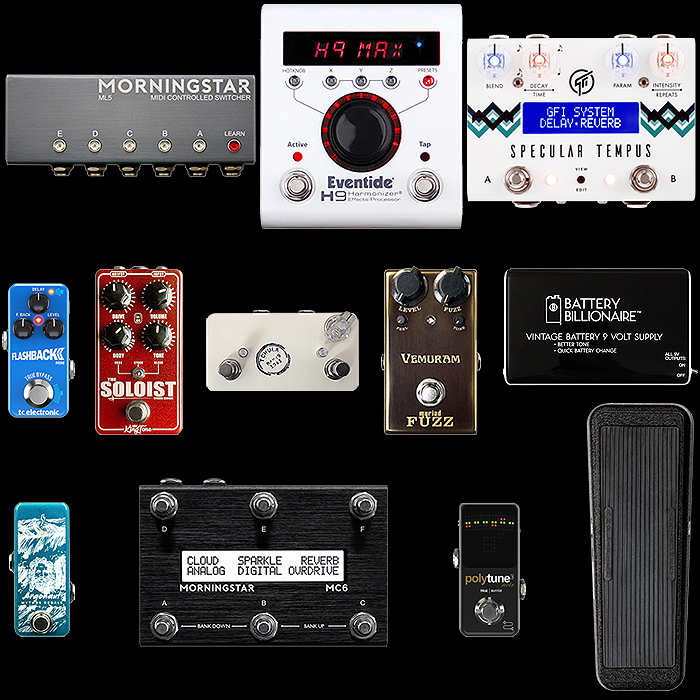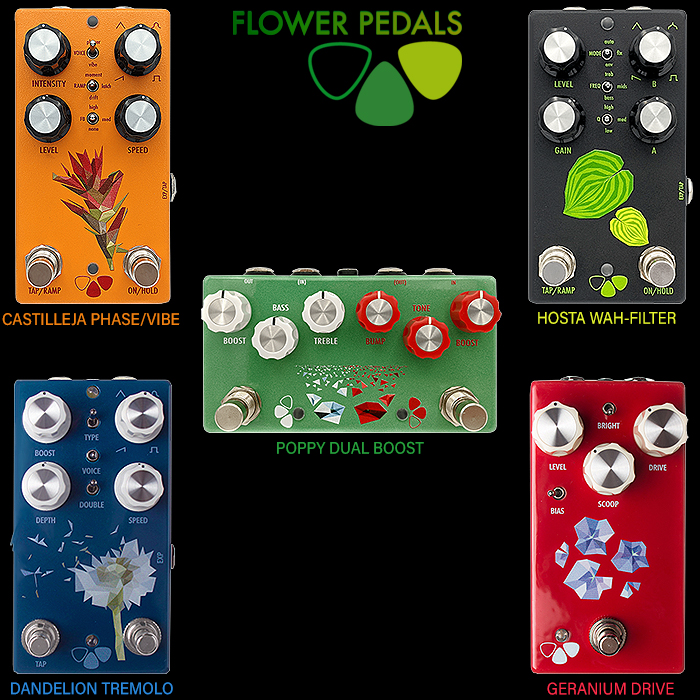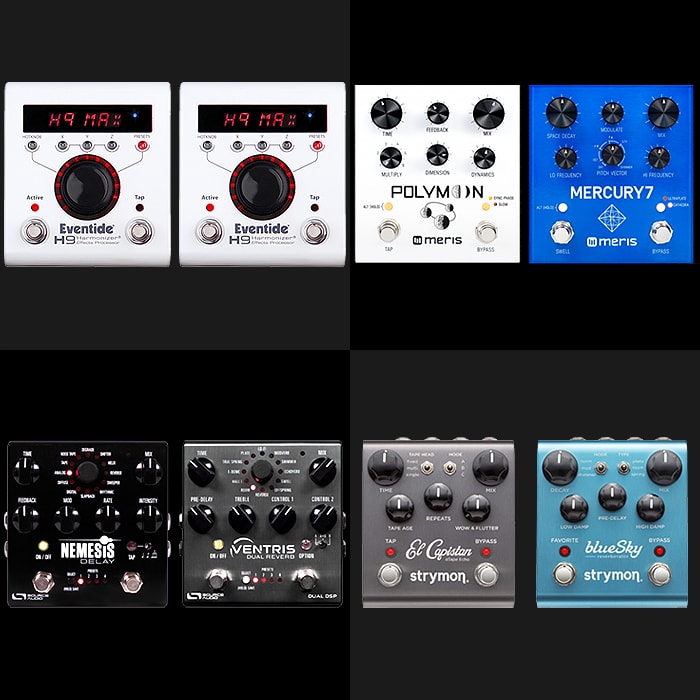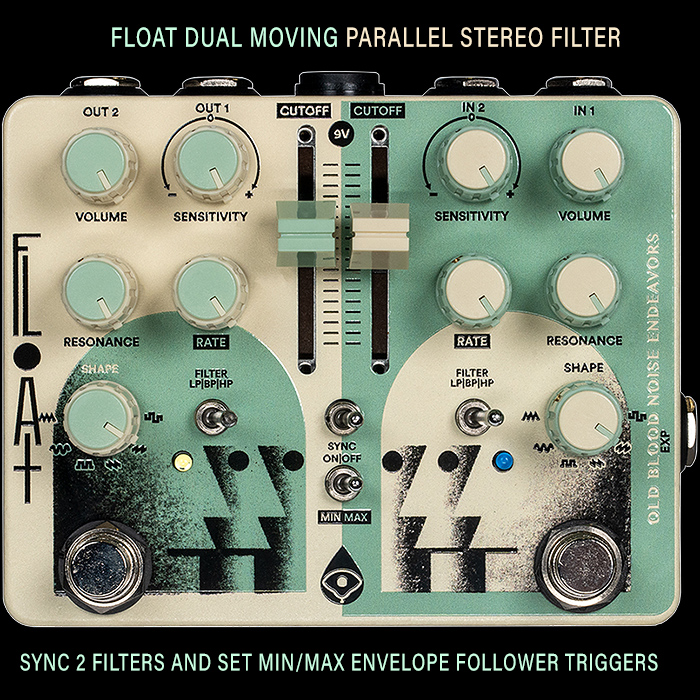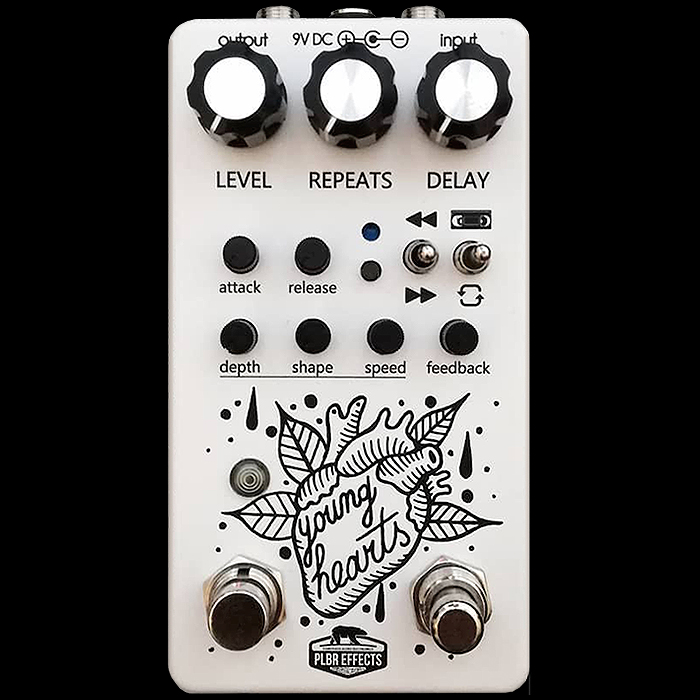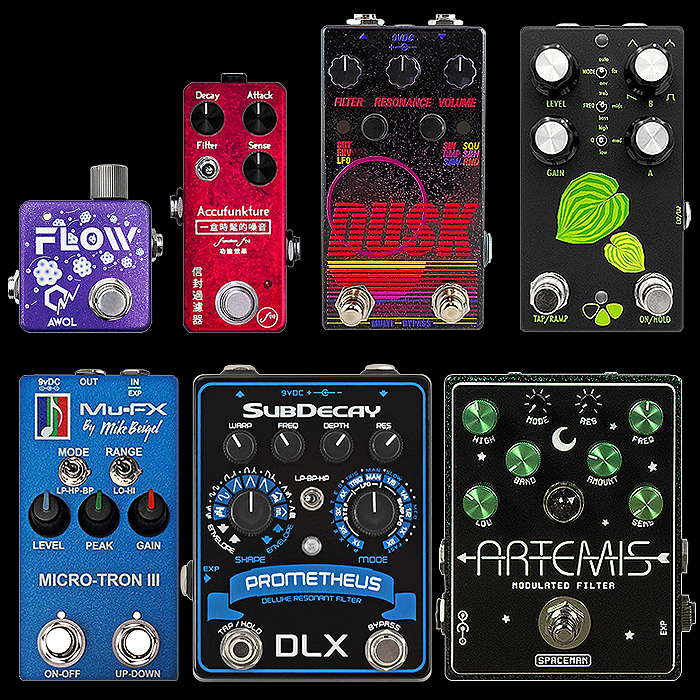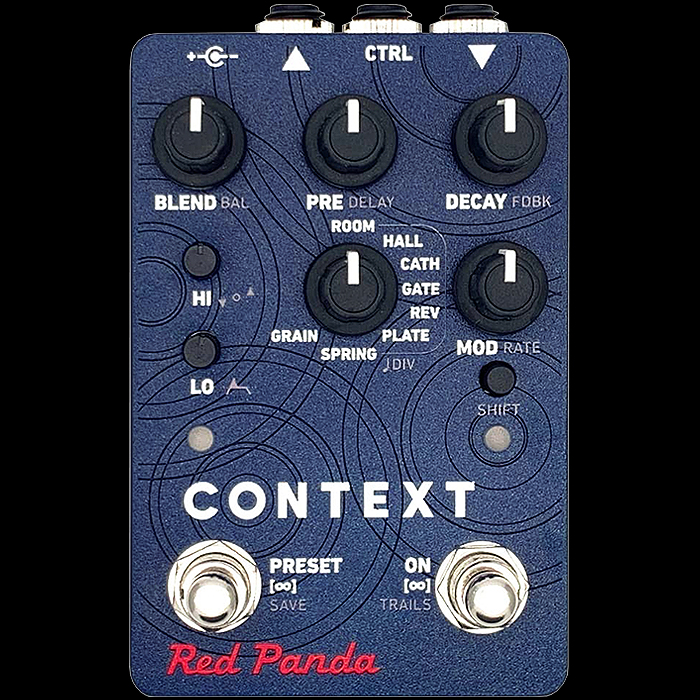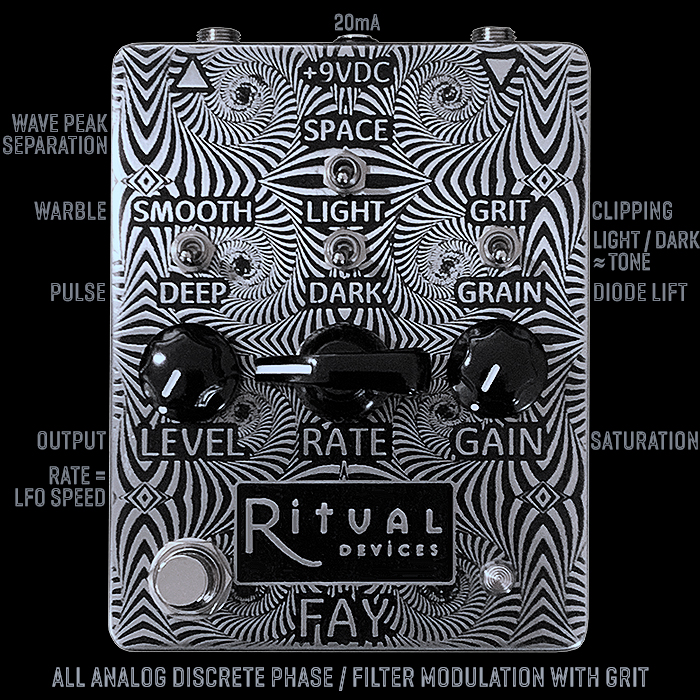GFI System Launches the Third of its Slimline Medium Enclosure Series - The 3-Mode Rossie Dynamic Multi-Filter Pedal
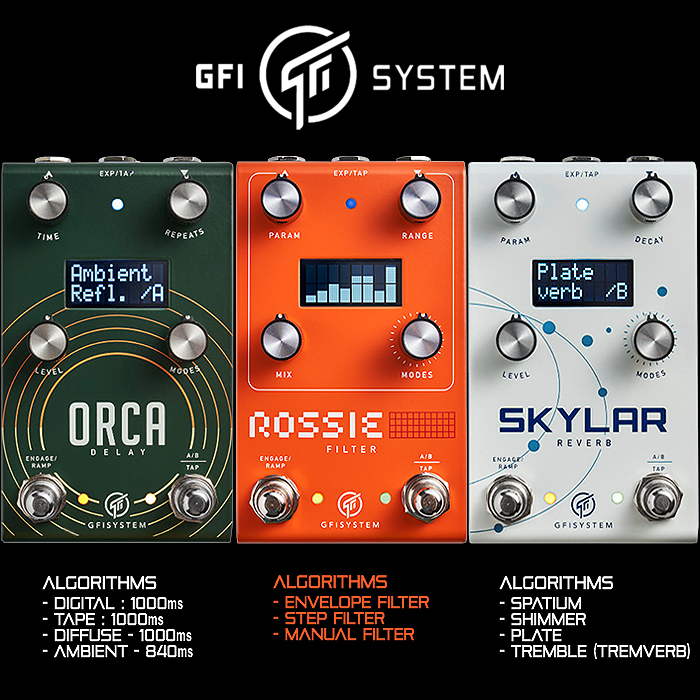
I’m a little late to get stuck into GFI System’s New Slimline Medium Enclosure Series - which was launched with the Orca Delay and Skylar Reverb back in May of this year. That new format of pedals borrows a mix of features and functionality from GFI’s now former Compact Horizontal Series - i.e. Clockwork Delay and Specular Reverb, as well as its flagship Synesthesia Dual-Channel Multi-Modulator.
In fact it looks like the Orca and Skylar are actually replacements for the Clockwork and Specular Reverb pedals - and not to be confused with the other flagship pedal - the Specular Tempus Delay + Reverb. Those earlier horizontal compacts had more Modes / Algorithms (7 Seven) and more onboard Presets (8 Eight) versus 3 or 4 Modes and just 2 presets for the new series - while those newer ones have clearer controls in most ways and more granularity and on-the-fly tweak-ability. The previous series was priced at circa £229 equivalent, while the newer series is around £199.
There is much to like here - where largely the most favoured algorithms have been ported across - but that smaller screen is not really quite as satisfying or as informative as the one on GFI Synesthesia and there are for sure some trade-offs.
One of the great features is the 4 x Multi-Function Knobs borrowed from the Syneshthesia - which each gives you access to a range of settings and parameters via 4 Modes of Operation - Turning / Quick-Presses or Taps / Press and Hold / Press-Hold and Twist. This means really rapid and simple access to secondary parameters and global settings - exactly like on the Synesthesia, while not quite as extensively visible or intuitive as on the Synesthesia.
I feel that in some ways this series makes a similar mistake as the Boss 200-Series - where those screen are just a touch too small - and don’t quite display the required level of information. I feel the Cooper FX Arcades gets this the most right - while the Boss GT-1000 CORES’ 5 onscreen parameters with corresponding controls are a further step up in many ways.
I personally have a pet peeve about too many secondary and tertiary parameters on fewer controls - and the fact that you often need to move the dial back again once you’ve dialled in said secondary parameters - for the primary parameter to be set correct. There is a best fit line for the number of intuitive controls - and I quite like the Arcades’ screen paging mechanic - which is a much more elegant visualisation of all those different parameters.
These new GFI devices are pretty powerful units and really quite efficient on the current draw - while it’s going to take a while to judge whether they are overall more successful in what they provide compared to the previous Clockwork and Specular.
It also seem quit common nowadays that pedal makers (Red Panda Lab included) are increasingly using single input and output sockets - with TRS capabilities for Stereo mode of operation.
I typically have an optimal Mode : Preset ratio of 1:1 - I have always found it odd that several pedals present way more algorithms than Presets. In that respect I really like that the Cooper FX Arcades allows you to apply your own Preset Variant of each Mode - while I would have it so that the Primary Active Mode was the User-Configurable Preset - which you could then just restore to factory settings if you need too. A slight downside with the Arcades is that you need to enter a secondary Preset mode to switch between algorithm Presets - while I would much prefer to have that surfaced to the default action.
The new series has these features in common :
- 3 or 4 Algorithms / Modes
- Intuitive LED Screen
- Secondary Parameters
- 2 Onboard Presets
- Dual Footswitches - with Ramping, Tap Tempo, Momentary Action and 2 Preset Select
- Informative / Intuitive LED Screen
- 4 Multi-Function Knobs / Push-Buttons - Turn / Quick-Press or Tap / Press and Hold / Press-Hold and Twist
- Analog Dry-Through
- Top Mounted Jacks - Including Expression / Tap-Tempo Jack
- Stereo Input / Output via use of TRS Y-Splitter Cables - for Orca and Skylar
- Shared Slimline Form Factor - 12 (L) x 7.2 (W) x 5.5 (H) cm
- Low Current Draw - 110mA
Here follow the further Individual details on each pedal - starting with the newest Rossie Filter variant :
Rossie 3-Mode Dynamic Multi-Filter Pedal - £199
This for me in many ways is the most appealing of the new trio of GFI Slimline Medium Enclosure units - even though it only has 3 Modes / Algorithms in place of the 4 you get with the Orca and Skylar. Yet these are all the Filter Modes you really need - and there are a tonne of really granular parameters here to ensure you get the best out of the unit.
The 3 Modes are :
Envelope Filter - a highly flexible envelope-controlled filter that follows the dynamics of your picking. The Direction of the filter sweep may be set to UP (standard envelope filter) or DOWN. It delivers a vast palette of sounds which are readily accessible through a selection of four distinct Filter Types - as below.
Parameters / Controls - PRIMARY > Param = Sensitivity, Range = Frequency Sweep, Mix = Wet/Dry Mix; SECONDARY > Direction : Up / Down, Q Bandwidth : Low / Medium / High / Sharp, Filter Types : Lowpass / Bandpass / Highpass / Peaking
Step Filter - a dynamic filter where the resonance frequency is arpeggiated (stepped) continuously. The number of steps is selectable from 4 to 8, and the amplitude of each step is freely adjustable via smart on-screen graphic. The Tempo of the step-through sequence can be tapped, with four selectable subdivisions. Again, four distinct filter types are available to choose from.
Parameters / Controls - PRIMARY > Param = Tempo, Range = Step Amplitude, Mix = Wet/Dry Mix; SECONDARY > Number of Steps : 4-8 & Random, Range : Frequency Sweep, Filter Types : Lowpass / Bandpass / Highpass / Peaking
Manual Filter - this mode offers a set of filters whose resonance frequency is manually controlled via a knob or an expression pedal. Meaning you can do things like setting up a Aah-style effect controlled by the Expression jack - where you define the 4 different Tapers of the Frequency Curve.
Parameters / Controls - PRIMARY > Param = Resonance, Range = Step Amplitude, Mix = Wet/Dry Mix; SECONDARY > Taper : 1-4, Q Bandwidth : Low / Medium / High / Sharp, Filter Types : Lowpass / Bandpass / Highpass / Peaking
Key Features :
- 3 select filter algorithms
- 2 presets
- 4 knobs with button action
- Intuitive interface with LCD screen
- Mono input and output
- Expression pedal and tap-tempo input
- Momentary action supported
Orca 4-Mode Stereo Digital Delay - £199
This unit essentially ports across 4 of the most essential delay algorithms from the now former Clockwork pedal. Where that had full stereo in and out jacks - where on the Orca that function is enabled by Y-Splitter TRS cables.
The addition of the screen makes things a lot more intuitive - while there is still some degree of complexity as there are numerous secondary and tertiary functions / parameters per each of the 4 x 4-way Control knobs.
It has to be noted that the Stereo Spread is particularly impressive on the Diffuse Mode.
The 4 Modes are :
Digital - Max 1000ms pristine Digital Delay
Parameters / Controls - PRIMARY > Time, Repeats, Level; SECONDARY > Mod Speed, Mod Depth, Tone, Ping-Pong
Tape - Max 1000ms vintage Tape-Style Delay
Parameters / Controls - PRIMARY > Time, Repeats, Level; SECONDARY > Wow, Flutter, Loss, Ping-Pong
Diffuse - Max 1000ms EchoVerb
Parameters / Controls - PRIMARY > Time, Repeats, Level; SECONDARY > Verb, Decay, Tone, Ping-Pong
Ambiental - Max 840ms Ambient Dealy with Modulation, Glitter and Pitch
Parameters / Controls - PRIMARY > Time, Repeats, Level; SECONDARY > Mod Speed, Mod Depth, Glitter, Pitch
Tap Divisions for each = 1/4, 3/4, 2/3, 1/8, 1/3
Key Features :
- 4 select delay algorithms
- 2 presets
- Analog dry-through
- 4 knobs with button action
- Intuitive interface with LCD screen
- Mono / Stereo input and output
- Expression pedal and tap-tempo input.
- Momentary action supported
Skylar 4-Mode Stereo Digital Reverb - £199
The replacement for the horizontal compact Specular Reverb - which carries across essentially the favourite 4 of that one's 7 algorithms. Similar to the Orca in having TRS-enabled Input and Output, and of course with the benefit of a screen over its former self.
There's a decent mix of algorithms - with Spatium essentially covering off Room / Hall / Cathedral / Cavern style of reflective Reverb dynamics.
The 4 Modes are :
Spatium - Reflective Spatial Reverb akin to Room, Hall, Cavern in increasing scale of magnitude
Parameters / Controls - PRIMARY > Modulation, Decay, Level; SECONDARY > Lows, Highs, Predelay, Panorama
Shimmer - Sparkly Pitch-Shifted Reverb
Parameters / Controls - PRIMARY > Shimmer, Decay, Level; SECONDARY > Mode, Highs, Pitch, Panorama
Plate - 80's style Metal Plate Reverb
Parameters / Controls - PRIMARY > Modulation, Decay, Level; SECONDARY > Lows, Highs, Predelay, Panorama
Tremble - Tremolo Reverb / TremVerb
Parameters / Controls - PRIMARY > Trem Speed, Decay, Level; SECONDARY > Shape, Highs, Trem Depth, Panorama
Sub Divisions for Tap-Tempo : 1:1, 1:2, 1:3, 1:4
Key Features :
- 4 select reverb algorithms
- 2 presets
- Analog dry-through
- 4 knobs with button
- Intuitive interface with LCD screen
- Mono / Stereo input and output
- Expression pedal and tap-tempo input
- Momentary action supported
Final Thoughts

In many ways these new series of effects sort of remind me of Alexander Pedals' Neo Series - with the additional benefit of a screen and slightly more granular parameter functions. This form factor here is pretty neat - in sitting somewhere between a Compact and a Vertical-BB-Size of enclosure. In fact with the top mounted jacks this only takes up about the same width as a compact with side-mounted jacks would.
This is not exactly the same, but very similar to the enclosures my friend Andy Sitek uses for his dual-footswitch pedals - which are a delightfully slim profile - and like I say - take up a very similar amount of footprint as compacts with side-mounted jacks.
The use of screens here is a significant boon, while those screens don't convey too much information and fall foul to the same problems as the Boss 200-Series screens. While Boss is doing some very interesting things to tackle that for its forthcoming 200-Series pedals.
The screens are certainly not at the same level as the GFI Synesthesia, Cooper FX Arcades, and say Boss GT-1000 CORE - where I really like seeing the 5 most pertinent Parameters displayed - each with an adjacent adjustment knob.
I think part of the decision process here is whether you want more flavours, or more depth - where these GFI effects certainly lean towards the latter - with a lot of depth to relatively few core flavours as such.
In terms of acquisitions - these all go up against some healthy competition in both Compact and Mid-Size enclosure. So even though the Orca is slimmer, it doesn't fully compete with what the Boss DD-200 delivers in Medium Enclosure or the Source Audio Nemesis - and the Keeley Eccos and Walrus Audio Mako D1 in compact enclosure. And for the Skylar - my preferred pick would likely be the Source Audio Ventris in the medium enclosure format and Walrus Audio R1 for compact.
The Rossie Filter is the most appealing to me here really, while beyond the Step Filtering it doesn't do too much out of the norm - but the ability to sequence 8 steps of varying amplitudes means that lots of people will really like it - and it goes in on my wishlist for Filter Pedals. While I've only just recently picked up a Spaceman Artemis and Subdecay Prometheus DLX - so I'm not really in the market for one of those that imminently.
What do you think readers - do any of these appeal to you?

